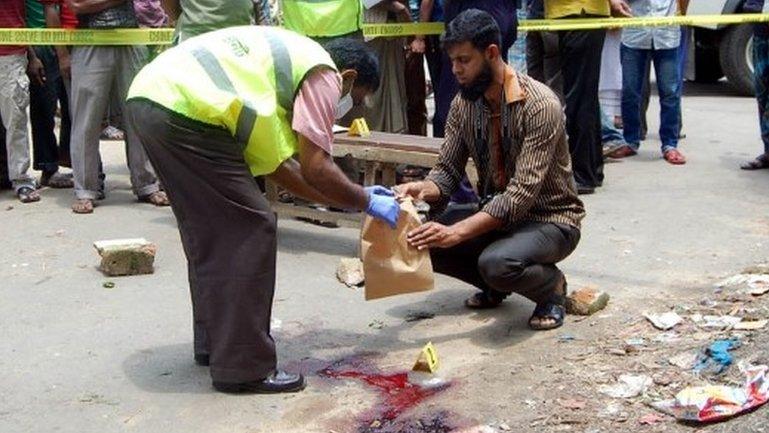Is violent extremism on the rise in Bangladesh?
- Published
Bangladeshi liberals are afraid of who might be next
"Five persons entered the house. They had a parcel with them. It was a highly planned and carefully choreographed killing."
Minhaz Mannan Emon's voice wavers slightly as he looks at me. Late last month, his younger brother Xulhas Mannan was brutally killed.
Posing as couriers, the men entered his apartment in a quiet Dhaka neighbourhood and hacked him to death with meat cleavers.
He was the country's most prominent gay activist, the founder of the only magazine for the LGBT community in Muslim-majority, conservative Bangladesh.
He was openly gay but his own family was uncomfortable about discussing his sexual orientation.
"Till his death we knew very little about him. We misunderstood him," Minhaz Mannan says. "We could never value his thoughts."
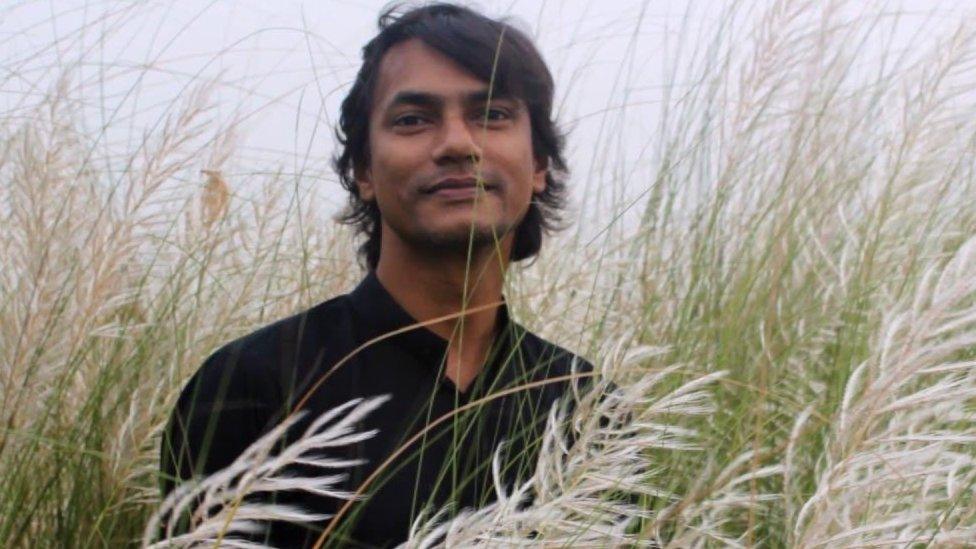
Xulhas Mannan, in a photo taken by his family
Lurching from secularism to sectarian terror?
Who is behind the Bangladesh killings?
The killing has sent shockwaves within Bangladesh's low-profile gay community and has also created international concern over the situation in the country.
It is the latest in a series of similar hacking deaths targeting secular bloggers, professors, foreigners and religious minorities.
Many people who fear they could be targeted are now in hiding.
Death threats
I track down the country's most famous blogger, Imran Sarkar, in his latest hideout. After my identity is checked several times, I gain entry into his apartment.
"I am here only for a few days," Mr Sarkar tells me, smiling, as he welcomes me in. "I change my location frequently."
He receives death threats almost every day, many on his Facebook page, or his Twitter account, even through mobile text messages or over the phone.
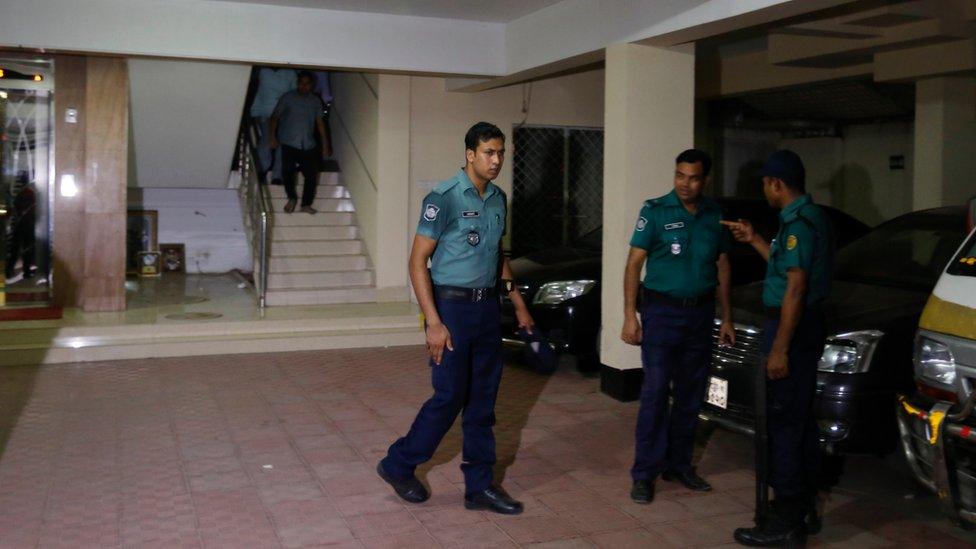
Mr Mannan and another man were killed at his apartment building
"A few days ago I got a call from a UK number," he says as he shows me the messages he has received inside a room with the curtains drawn over all the windows.
"They told me to prepare for death. We'll slaughter you," he said.
"The target is this country, this society and its secular frame. They are saying if you disagree with me you will be killed."
I ask him if he is afraid? He tells me he is not frightened for his personal safety.
"I am frightened for my country. Not for my individual security but for my national security," he says.
'In denial'
The killings have been claimed by local militant groups who say they are affiliated to al-Qaeda and the so-called Islamic State.
But the Bangladesh government dismisses this, saying it is the work of local hardline Islamist groups with a political motive.
"To our knowledge, as such today IS has not been involved in the recruitment of militants, or any militant activities within the boundaries of Bangladesh," says Hasanul Haq Inu, the country's information minister.
"The government is working hard to tackle the problem. If you look at our track record, Bangladesh is safer today than Europe or America."
But many accuse the government of living in denial.
"This is a competing ground for al-Qaeda and IS," says Brigadier Sakhawat Hossain, a retired army officer who has served as the country's election commissioner and is now a security analyst.
"We have 90% Muslims concentrated in a small place. Many of them are highly-educated youth who are unemployed. So they get attracted to their ideology."
Brig Hossain is among several people who believe that even if the Islamic State or al-Qaeda do not have a credible presence in Bangladesh as yet, it is a fertile breeding ground especially if the government does not act.
"If these groups get a foothold here, it could be dangerous not just for us but also for the region."
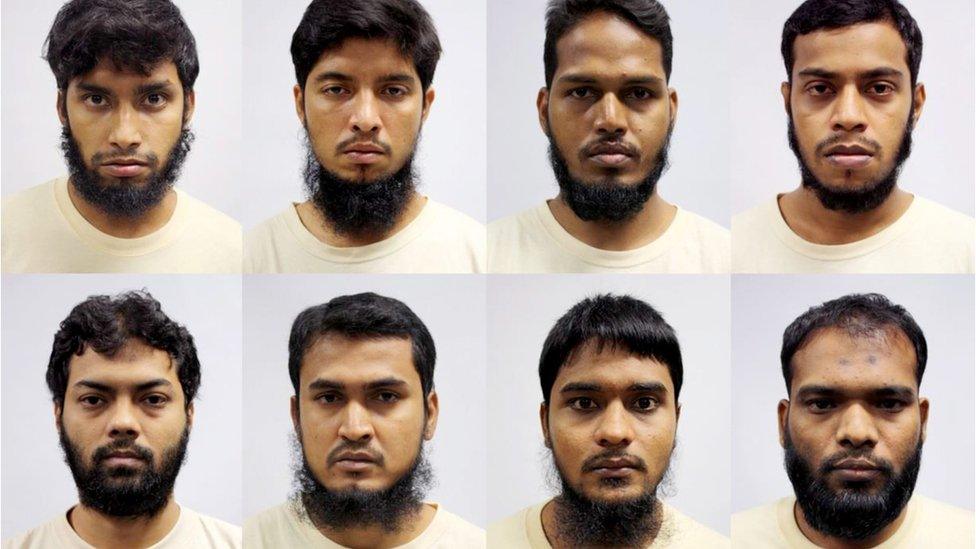
Singapore officials released this composite image of eight Bangladeshi men they say are members of IS
This week, Singapore deported eight Bangladeshis who they say belong to the Islamic State with plans to carry out attacks in their own country.
The Bangladesh police then arrested five others from the same group on the same day, after receiving information from the Singapore authorities.
Many are hoping that the crackdown will intensify to prevent Bangladesh from sliding into more extremist violence.

Who is being targeted?
The grim list of those who have fallen victim to attacks by Islamist militants in Bangladesh is growing ever diverse.
Secular bloggers, academics, gay rights activists, and members of religious minorities including Shia, Sufi and Ahmadi Muslims, Christians and Hindus have all been killed, many of them hacked to death.
That a university professor whose family said believed in God could also be murdered suggests the list of those at risk has widened further.
Who exactly is behind the attacks remains murky. Bangladesh has myriad extremist groups and there have been few convictions over the attacks.
Bangladesh has disputed claims by so-called Islamic State or al-Qaeda-linked groups for the attacks, instead often blaming opposition parties or local Islamist groups.
But until the killings stop the government itself will face accusations of not doing enough to protect minorities in the Sunni-dominated nation.

- Published25 April 2016
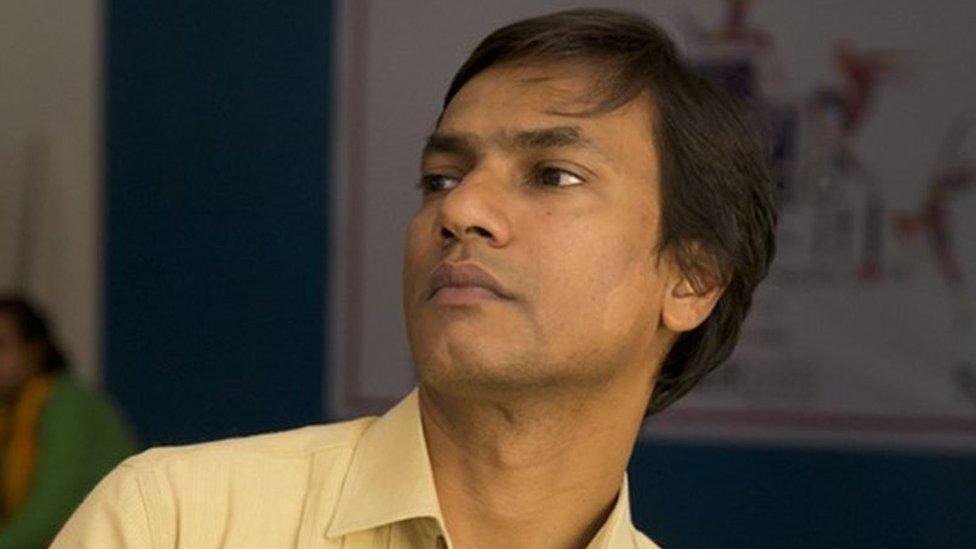
- Published10 March
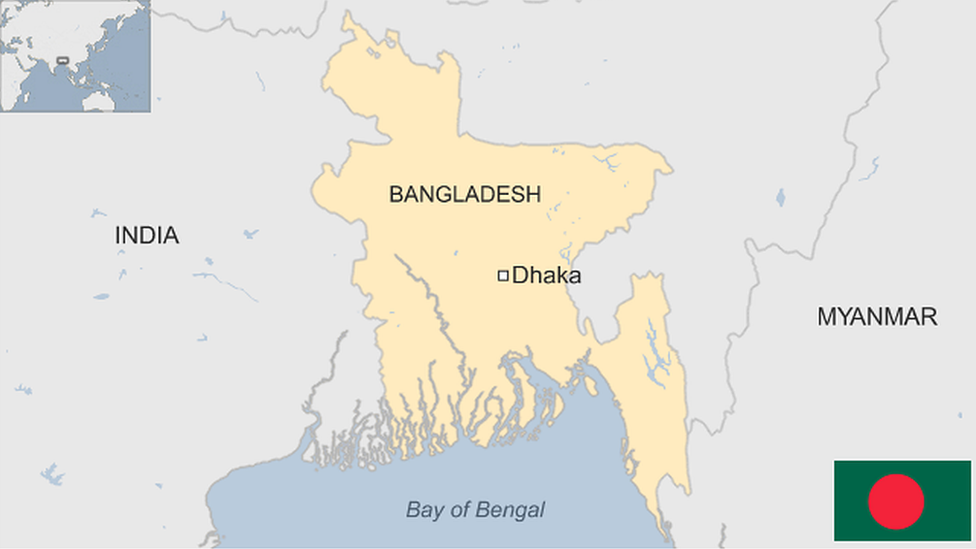
- Published24 April 2016
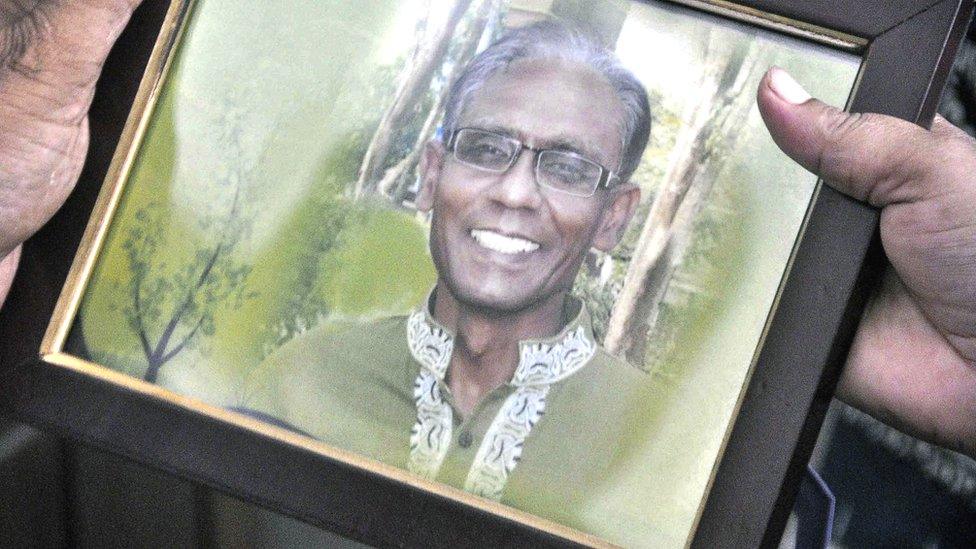
- Published1 December 2015
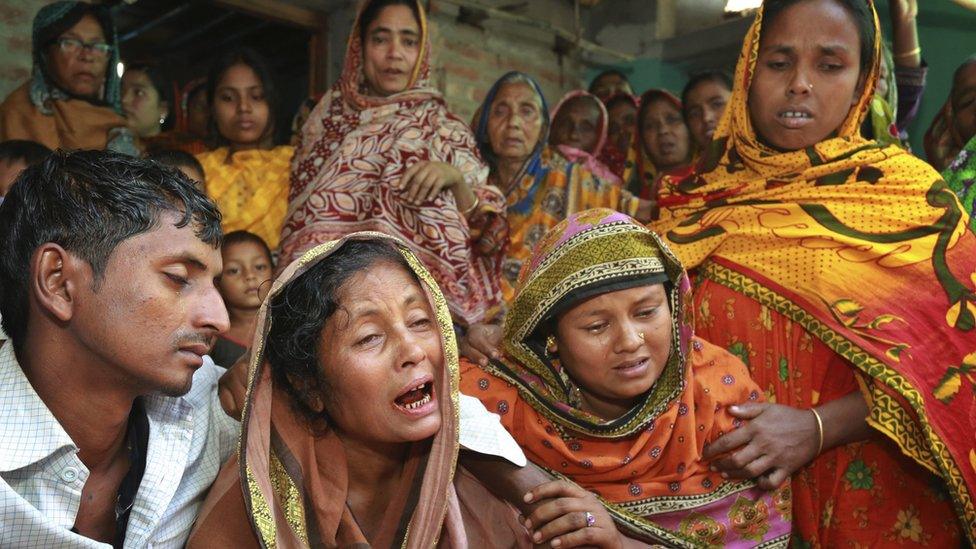
- Published2 May 2016
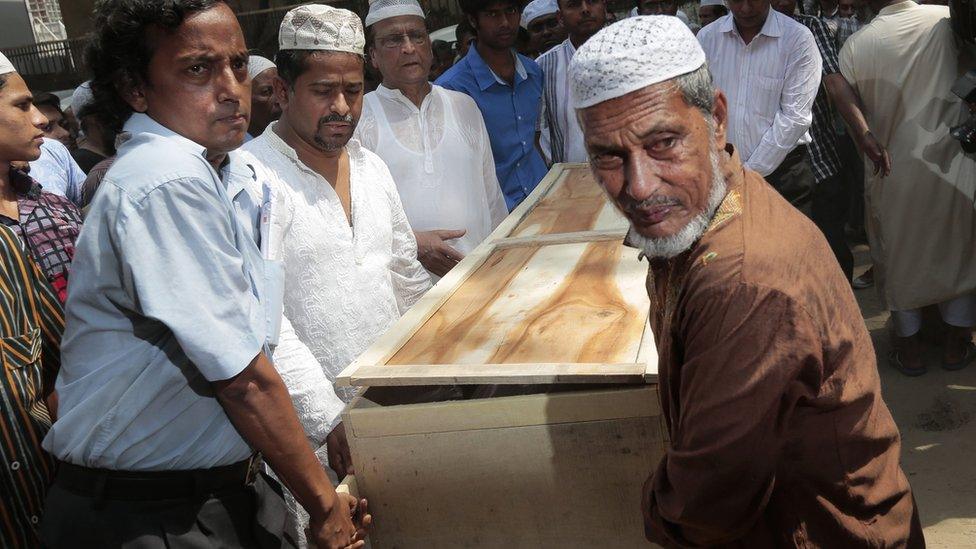
- Published9 October 2015
- Published7 August 2015
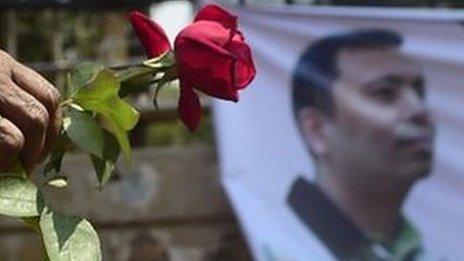
- Published12 May 2015
